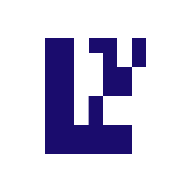
Independent organization dedicated to fostering the growth of the EigenLayer ecosystem, the Eigen Foundation, announced the launch of EigenGov, a governance system for EigenLayer.
The primary purpose of EigenGov is to serve as a coordination layer for the EigenLayer ecosystem, which includes EIGEN holders, AVS developers, operators, and stakers. These stakeholders play critical roles in ensuring the protocol’s growth, security, and reliability. EigenGov is designed to unite participants around a shared vision of open innovation through a system that prioritizes both efficiency and decentralization.
In EigenGov, the active contributors to the ecosystem—those developing within EigenLayer or utilizing its services—are intended to guide day-to-day decision-making. While direct tokenholder voting may not always occur, the legitimacy of EigenGov’s decisions ultimately derives from EIGEN holders, who are central to the system’s structure and governance.
EigenGov Unveils Council System
The core of EigenGov Version 1 is its council system. Governance authority is distributed among multiple councils composed of trusted experts with deep contextual knowledge. These councils, empowered by token holders, are accountable through a system of checks and balances. Each council has domain-specific authority over aspects of the EigenLayer protocol and EigenGov, such as upgrading core protocol contracts (Protocol Council), managing rewards parameters (Incentives Council), overseeing community grants budgets (Grants Council), and evaluating or setting limits on governance powers (Eigen Council).
Each council operates under a charter that defines its scope of authority and decision-making powers. Over time, these councils are anticipated to grow in number, expand their responsibilities, and diversify their membership.
EIGEN holders retain the authority to veto council decisions. They can also endorse contributors who possess relevant expertise for council membership or delegate this endorsement authority to “curators,” who act on behalf of the delegating holders.
In order to address the challenges of effective and decentralized governance, the Eigen Foundation has adopted an incubation approach for establishing, appointing, and supporting councils. Initially, the Foundation will foster these councils within its structure to ensure operational effectiveness. This incubation period allows for research, testing, and iteration on governance designs, preparing councils for eventual independence. Key focus areas include incentivization, alignment, and accountability of councils.
Further refining its governance framework, the Eigen Foundation has implemented a dual-track software development strategy for EigenGov: the Core and Vision tracks.
Core represents a stable, production-ready governance system that prioritizes simplicity, security, scalability, and reliability. This branch ensures consistent operation and emphasizes clarity and robustness. Vision, on the other hand, is an experimental branch designed to explore and test innovative governance approaches in a controlled setting. Successful innovations from Vision are integrated into Core, creating a continuously evolving governance system that balances stability with progress.
The post Eigen Foundation Introduces EigenGov, Granting EIGEN Holders Veto Power Over Council Decisions appeared first on Metaverse Post.
